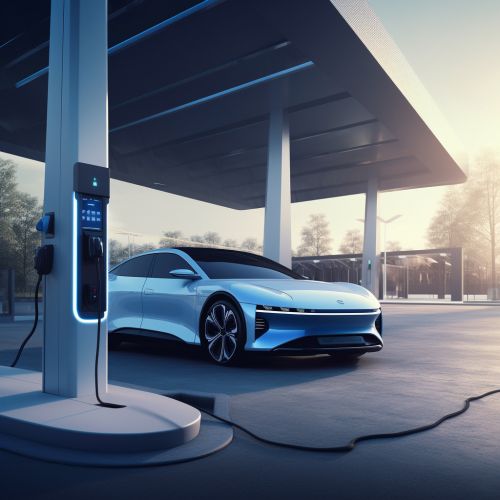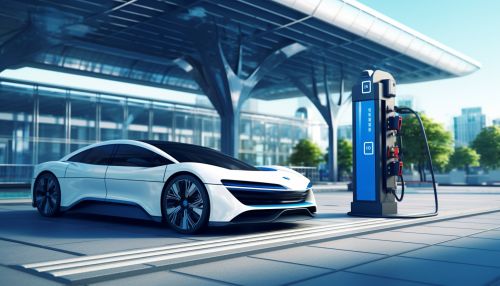Hydrogen Economy
Overview
The Hydrogen Economy is a proposed system of delivering energy using hydrogen. Predicated on the idea of hydrogen as a primary source of energy, the concept often includes hydrogen production, storage, transport, and consumption in a cycle similar to the current electricity grid. The hydrogen economy is gaining increased attention due to the need for sustainable energy systems and the rise of renewable energy technologies.


History
The term "hydrogen economy" was first coined by John Bockris during a talk he gave in 1970 at General Motors (GM) Technical Center. The concept was proposed as a solution to some of the negative effects of using fossil fuels for energy.
Hydrogen Production
The production of hydrogen is a key aspect of the hydrogen economy. There are several methods for hydrogen production, including steam reforming, electrolysis, and photocatalytic water splitting.
Hydrogen Storage
Storing hydrogen can be done in several ways, including high-pressure tanks, cryogenic storage, and chemical storage in the form of hydrogen compounds. Each method has its advantages and disadvantages, and the choice of storage method depends on the specific requirements of the hydrogen economy.
Hydrogen Transport
Transporting hydrogen from the place of production to the place of use is a critical aspect of the hydrogen economy. This can be done through pipelines, tankers, or other means. The choice of transport method depends on various factors, including distance, volume of hydrogen to be transported, and infrastructure availability.
Hydrogen Consumption
Hydrogen can be consumed in several ways in a hydrogen economy. The most common method is through fuel cells, which convert the chemical energy of hydrogen into electricity. Hydrogen can also be used in internal combustion engines or gas turbines.
Advantages and Challenges
The hydrogen economy offers several advantages, including the potential for a high degree of energy security, the ability to integrate various sectors of the economy, and the potential for reducing greenhouse gas emissions. However, there are also several challenges that need to be overcome, including the need for significant infrastructure investment, the current high cost of hydrogen production, and the need for improved hydrogen storage and transport technologies.
Future Prospects
The future prospects of the hydrogen economy depend on a variety of factors, including technological advancements, policy support, and market dynamics. While the concept has been around for several decades, the realization of a fully functioning hydrogen economy is still a topic of ongoing research and debate.
